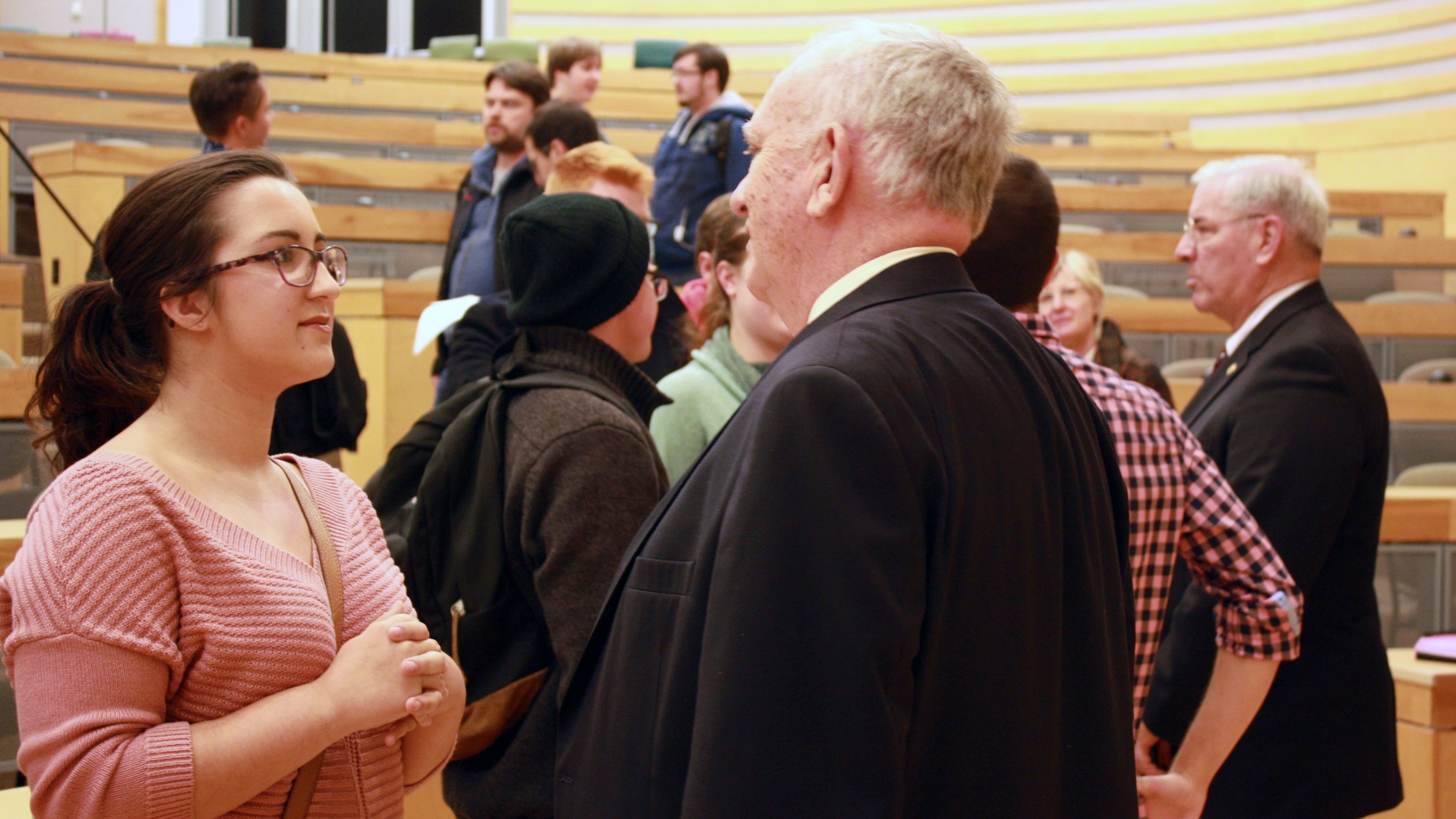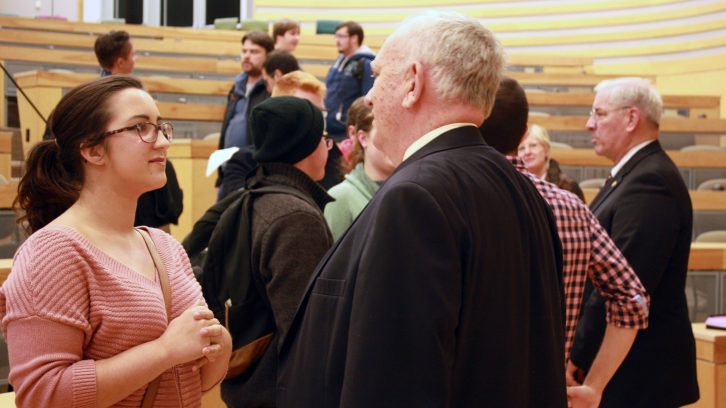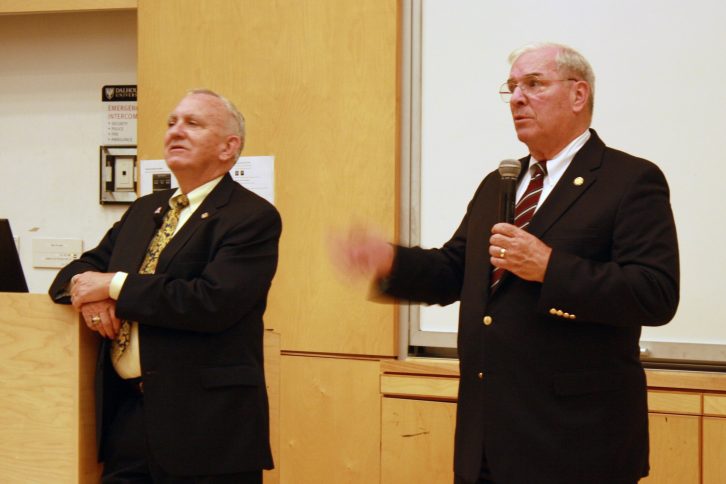U.S. POLITICS
Congress on Campus talks Trump, U.S. election
Days after Clinton-Trump debate, congressmen reassure students about state of American politics

caption
Martin Lancaster, left, and Steven Kuykendall, right, have been impressed by the interest Canadians have about the upcoming American election.
caption
Martin Lancaster, centre, and Steven Kuykendall, in the background, have been impressed by Canadians’ interest in the American election.Congressmen Steven Kuykendall and Martin Lancaster answered questions Thursday night at Dalhousie University, and were surprised by Canadians’ concern about the election – especially about Donald Trump.
“We didn’t expect the level of concern about it,” says Kuykendall.
The businessman, TV personality and Republican presidential candidate has become internationally infamous for his misogyny and his extreme views on immigration. He has 35 per cent support according to a WBUR poll released today. Hillary Clinton has 42 per cent support, which in many states is a a mere single-digit lead, according to CNN.
Kuykendall admits he still doesn’t know who’s going to get his vote. Even though he’s a Republican, he “absolutely detests” Trump. He isn’t a fan of any of the other candidates, either.
The two former U.S. congressmen – Kuykendall and Lancaster, a Democrat – visited Dal as part of their 11-day cross Canada tour to answer questions on American politics.
“I think (Trump) would be in for a rude awakening, if he should be elected, when he tries to dictate to the country all these different things he says wants to do,” says Lancaster.
Kuykendall says that many people don’t understand how power is shared by the president, Congress and the Supreme Court. The three branches of government are separate, but have veto power over each other.
“That president is only going to be as successful – no matter what they said in the election – if they can convince Congress and the Court to go along,” says Kuykendall.
“Even when we get bad presidents, vice presidents or representatives of state, we work around them.”

caption
Lancaster, left, was in the House of Representatives from 1987 to 1995 and Kuykendall served from 1999 to 2001.The congressmen have been impressed by the reception they’ve received in Canada.
“Quite frankly, the Canadians are more engaged,” says Kuykendall.
The timing of the talk couldn’t have been better, says Sarah-Jane Corke, coordinator of the American studies program at Dalhousie University.
Corke thinks a mixture of interest and concern about Trump’s candidacy brought students out for the event.
“I think for some of them, they wanted some reassurance that things aren’t going to change, that the status quo will continue.”

